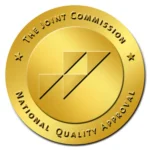Depression Treatment
in San Diego
Oceanside Recovery Centers and Mental Health offers men’s only depression treatment in San Diego. Contact us today to learn more.
Depression is not merely a transient feeling of sadness; it’s a profound mental health condition that can profoundly affect every aspect of one’s life, from personal relationships to professional performance. For men, the experience and expression of depression come with additional challenges, largely due to societal expectations that demand toughness and emotional restraint. At Oceanside Mental Health in San Diego County, we specialize in addressing these unique challenges through dedicated depression treatment tailored for men, focusing on not just managing symptoms but fundamentally transforming lives.
Understanding Depression
Depression is a severe medical illness that negatively affects how you feel, the way you think, and how you act. It involves a persistent feeling of sadness and a lack of interest or pleasure in previously rewarding or enjoyable activities. It can lead to various emotional and physical problems and can decrease a person’s ability to function at work and at home.
Common Symptoms of Depression
Depression can manifest through a variety of symptoms, which may vary significantly among individuals:
- Persistent sad, anxious, or “empty” mood
- Feelings of hopelessness, or pessimism
- Irritability and frustration, even over small matters
- Loss of interest or pleasure in hobbies and activities once enjoyed
- Decreased energy, fatigue, or being “slowed down”
- Difficulty concentrating, remembering, or making decisions
- Difficulty sleeping, early-morning awakening, or oversleeping
- Appetite and/or weight changes
- Thoughts of death or suicide, or suicide attempts
- Unexplained physical problems, such as back pain or headaches
Types of Depressive Disorders
Depression encompasses a variety of specific types, each characterized by distinct symptoms, causes, and effects. Understanding the different types of depressive disorders is crucial for effective diagnosis and tailored treatment strategies. Here are several common forms of depression:
Major Depressive Disorder (MDD)
Major Depressive Disorder, often referred to simply as depression, involves significant depressive symptoms that last for most of the day, nearly every day, for at least two weeks. Symptoms include a deep sadness or a loss of interest in previously enjoyed activities, along with other emotional and physical symptoms that disrupt the ability to function effectively in daily life.
Persistent Depressive Disorder (Dysthymia)
Persistent Depressive Disorder, also known as dysthymia, is characterized by a chronic form of depression. Although its symptoms are not as severe as those of major depression, they can last for years, significantly impacting relationships and performance at work or school. People with dysthymia may also experience episodes of major depression, sometimes referred to as “double depression.”
Bipolar Disorder
Bipolar disorder, formerly known as manic depression, involves significant mood swings that include emotional highs (mania or hypomania) and lows (depression). During the depressive phase, an individual may experience symptoms similar to those of major depression. Treatment often requires a different approach, including mood stabilizers to manage both the high and low phases.
Seasonal Affective Disorder (SAD)
Seasonal Affective Disorder is a type of depression that typically occurs during the winter months when there is less natural sunlight. It is most common in countries far from the equator. Symptoms are similar to those of major depressive disorder but occur seasonally and may lift during the spring and summer months.
Atypical Depression
Atypical depression refers to a depressive disorder that temporarily improves in response to positive events. Unlike other forms of depression, individuals with atypical depression may experience increased appetite or weight gain, hypersomnia, a heavy feeling in the arms or legs, and significant sensitivity to rejection.
Adjustment Disorder with Depressed Mood
Also known as situational depression, this is a short-term form of depression that occurs as a direct result of a traumatic event or change — such as divorce, job loss, a death in the family, or moving homes. Symptoms are similar to those of major depressive disorder but are triggered by an external event and typically resolve once the individual adapts to the situation.
Depression in Men
Over 6 million men suffer from depression per year. Depression in men can often go unrecognized and untreated because the symptoms can appear differently than those commonly associated with depression. Men are more likely to report fatigue, irritability, loss of interest in work or hobbies, and sleep disturbances rather than feelings of sadness or worthlessness. The cultural expectations placed on men to be strong and stoic can make it difficult for many to express emotional pain or seek help. As a result, depression in men often manifests through excessive drinking, drug use, aggressive or risky behavior, and anger. Recognizing these signs is crucial for effective diagnosis and treatment. At Oceanside Mental Health, we understand these nuances and tailor our treatments to address the specific ways depression impacts men, providing a supportive environment where men can feel comfortable discussing their mental health.
Causes of Depression in Men
Depression in men can stem from a complex interplay of biological, psychological, and social factors. Understanding these causes is crucial in tailoring effective treatments that address the specific needs of men struggling with depression. Here are some of the key factors contributing to depression in men:
Biological Factors:
- Genetics: A family history of depression can increase the risk, suggesting a genetic component to the susceptibility of developing this condition.
- Neurobiology: Changes in the brain’s neurotransmitter levels, including serotonin, dopamine, and norepinephrine, are commonly associated with depression. Men’s hormonal changes, particularly in testosterone levels, can also influence mood and emotional state.
Psychological Factors:
- Personality: Men with certain personality traits such as low self-esteem, being overly dependent, self-critical or pessimistic, have an increased risk of developing depression.
- Cognitive Patterns: Men often have different cognitive responses to stress compared to women, focusing more on control, success, and power. Failure to meet personal goals in these areas can lead to feelings of inadequacy and depression.
Social Factors:
- Social Norms and Expectations: Cultural expectations that men must be strong, stoic, and manage emotional problems on their own can lead to a reluctance to seek help, worsening symptoms of depression.
- Relationships and Social Support: Men are less likely to have strong social support networks compared to women. Poor relationship quality and the lack of emotional support can increase the risk of depression.
- Stressful Life Events: Significant life changes such as job loss, financial troubles, or the death of a loved one can trigger depression. Men may also experience stress from societal pressures to fulfill roles as providers or protectors, contributing to depressive symptoms.
Lifestyle and Behavioral Factors:
- Substance Use: Men are more likely to use alcohol and drugs to cope with emotional stress, which can lead to mood disorders or exacerbate existing depressive symptoms.
- Work-related Stress: High levels of stress at work and the perceived need to succeed professionally can significantly impact men’s mental health.
- Health Issues: Chronic health problems, particularly those involving chronic pain or debilitating conditions, can contribute to the onset of depression in men.
Why Oceanside Mental Health?
Oceanside Mental Health is dedicated to addressing the mental health needs of men, with programs designed to help our patients manage symptoms of depression in a way that is mindful of the specific social and emotional challenges men often face. Our approach is compassionate and pragmatic, focusing on building resilience and coping strategies in a supportive environment.
Our treatment philosophy is grounded in a combination of evidence-based practices and innovative approaches tailored to individual needs. We understand that each person’s journey with depression is unique, and our programs reflect this diversity. We offer a range of treatments from cognitive behavioral therapy (CBT) to medication management, all tailored to support the mental health of men in a confidential and respectful setting.
Our Depression Treatment Program
Our comprehensive depression treatment program is designed to provide men with the tools they need to overcome depression. The program begins with a thorough assessment to understand each individual’s specific needs and to develop a personalized treatment plan that includes a combination of therapeutic approaches and potential medication management.
Therapeutic Modalities Used
Our facility employs a range of therapeutic modalities to treat depression effectively:
- Individual Therapy: Tailored one-on-one sessions focus on personal issues and aim to improve coping strategies.
- Group Therapy: Provides a supportive environment to share experiences and learn from others facing similar challenges.
- Cognitive Behavioral Therapy (CBT): Helps patients identify and change destructive thought patterns that have a negative influence on behavior and emotions.
- Medication Management: Overseen by psychiatric professionals to ensure optimal treatment of depression with medication, when necessary.
Support Systems and Community Engagement
Family support is crucial in the treatment of depression. Our program includes family therapy sessions that educate family members about depression, teach them how to provide support, and improve overall family dynamics.
We also leverage community resources to provide a comprehensive support network for our patients, helping them to connect with community services and resources that can support their recovery and integration into everyday life.
Holistic Approaches to Treatment
Physical health is closely linked to mental health, which is why our center includes physical fitness in our treatment plans. Our wellness programs are designed to improve physical health, which in turn, can alleviate some symptoms of depression.
Proper nutrition significantly impacts mental health. Our nutritional counseling aims to optimize each patient’s dietary habits to support overall health and well-being.
Start the Recovery Journey
At Oceanside Mental Health, we are dedicated to providing the support and care necessary to overcome depression. If you or a loved one are struggling with depression, we invite you to reach out today and take the first step towards a healthier, happier life.
Frequently Asked Questions

Dr. Anna Pollard (PSY35428) is a licensed clinical psychologist and the Clinical Director at Oceanside Mental Health where she oversees the clinical operations, ensuring the highest standards of care for clients and mentoring a multidisciplinary team of mental health professionals. She earned her PhD in Clinical Psychology with a health emphasis from the California School of Professional Psychology, an APA-accredited program.

